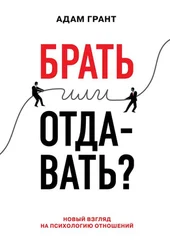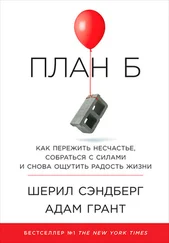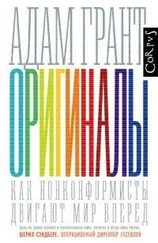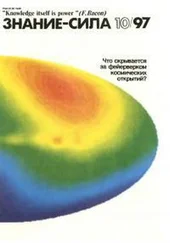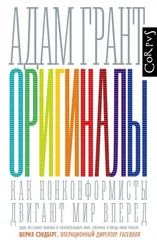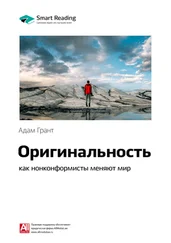«Teacher Materials and Resources», Historical Thinking Matters, http://historicalthinkingmatters.org/teachers.
Elizabeth Emery, «Have Students Interview Someone They Disagree With», Heterodox Academy, February 11, 2020, heterodoxacademy.org/viewpoint-diversity-students-interview-someone.
Annabelle Timsit, «In the Age of Fake News, Here’s How Schools Are Teaching Kids to Think Like Fact-Checkers», Quartz, February 12, 2019, qz.com/1533747/in-the-age-of-fake-news-heres-how-schools-are-teaching-kids-to-think-like-fact-checkers.
Rose Troup Buchanan, «King Tutankhamun Did Not Die in Chariot Crash, Virtual Autopsy Reveals», Independent, October 20, 2014, www.independent.co.uk/news/science/king-tutankhamun-did-not-die-in-chariot-crash-virtual-autopsy-reveals-9806586.html.
Brian Resnick, «Farts: Which Animals Do, Which Don’t, and Why», Vox, October 19, 2018, www.vox.com/science-and-health/2018/4/3/17188186/does-it-fart-book-animal-farts-dinosaur-farts.
Louis Deslauriers et al., «Measuring Actual Learning versus Feeling of Learning in Response to Being Actively Engaged in the Classroom», PNAS 116 (2019): 19251–57.
Scott Freeman et al., «Active Learning Increases Student Performance in Science, Engineering, and Mathematics», PNAS 111 (2014): 8410–15.
Jochen I. Menges et al., «The Awestruck Effect: Followers Suppress Emotion Expression in Response to Charismatic but Not Individually Considerate Leadership», Leadership Quarterly 26 (2015): 626–40.
Adam Grant, «The Dark Side of Emotional Intelligence», The Atlantic, January 2, 2014, www.theatlantic.com/health/archive/2014/01/the-dark-side-of-emotional-intelligence/282720.
M. Stains et al., «Anatomy of STEM Teaching in North American Universities», Science 359 (2018): 1468–70.
Grant Wiggins, «Why Do So Many HS History Teachers Lecture So Much?», April 24, 2015, rantwiggins.wordpress.com/2015/04/24/why-do-so-many-hs-history-teachers-lecture-so-much.
По некоторым данным, ученики средних классов набирают больше баллов в тестах по математике и естественным наукам, если учителя больше времени отводят лекциям, чем активному обучению [ Guido Schwerdt and Amelie C. Wupperman, «Is Traditional Teaching Really All That Bad? A Within-Student Between-Subject Approach», Economics of Education Review 30 (2011): 365–79. ]. Пока неизвестно, действительно ли для юных учащихся лекции эффективнее или дело в неправильном использовании методов активного обучения.
Robert Nozick, Anarchy, State, and Utopia (New York: Basic Books, 1974).
Нозик предполагал, что большинство откажется от машины [ Felipe De Brigard, «If You Like It, Does It Matter If It’s Real?», Philosophical Psychology 23 (2010): 43–57. ], потому что человек предпочитает быть и делать, а не просто получать опыт, и не захочет ограничиваться воображением и возможностями симуляции. В последующие годы философы утверждали, что если бы мы и отказались от машины, то не по этим причинам, а из-за отклонения в сторону статус-кво — ведь нам пришлось бы покинуть знакомую реальность. Для проверки гипотезы изменили условия и провели эксперимент. Представьте, что в один прекрасный день вы проснулись и узнали, что вся ваша жизнь — это опыт, который сгенерирован машиной, созданной много лет назад, и теперь вы можете отключиться от нее или вернуться обратно. При таких условиях 46% заявили, что хотели бы снова подключиться к машине. Если «реальность» — это жизнь художника-мультимиллионера в Монако, вернуться в машину пожелали 50%. Похоже, остальные предпочитают знакомый виртуальный мир незнакомой реальности или просто не любят искусство, деньги и конституционную монархию.
Asahina Robert, «The Inquisitive Robert Nozick», New York Times, September 20, 1981, www.nytimes.com/1981/09/20/books/the-inquisitive-robert-nozick.html.
Ken Gewertz, «Philosopher Nozick Dies at 63», Harvard Gazette, January 17, 2002, news.harvard.edu/gazette/story/2002/01/philosopher-nozick-dies-at-63; see also Hilary Putnam et al., «Robert Nozick: Memorial Minute», Harvard Gazette, May 6, 2004, news.harvard.edu/gazette/story/2004/05/robert-nozick.
Joachim Stoeber and Kathleen Otto, «Positive Conceptions of Perfectionism: Approaches, Evidence, Challenges», Personality and Social Psychology Review 10 (2006): 295–319.
Dana Harari et al., «Is Perfect Good? A Meta-analysis of Perfectionism in the Workplace», Journal of Applied Psychology 103 (2018): 1121–44.
Philip L. Roth et al., «Meta-analyzing the Relationship between Grades and Job Performance», Journal of Applied Psychology 81 (1996): 548–56.
Adam Grant, «What Straight-A Students Get Wrong», New York Times, December 8, 2018, www.nytimes.com/2018/12/08/opinion/college-gpa-career-success.html.
Donald W. Mackinnon, «The Nature and Nurture of Creative Talent», American Psychologist 17 (1962): 484–95.
Karen Arnold, Lives of Promise: What Becomes of High School Valedictorians (San Francisco: Jossey-Bass, 1995).
Mike Kaiser, «This Wharton Senior’s Letter Writing Project Gets Global Attention», Wharton School, February 17, 2016, www.wharton.upenn.edu/story/wharton-seniors-letter-writing-project-gets-global-attention.
Aloysius Wei Lun Koh, Sze Chi Lee, and Stephen Wee Hun Lim, «The Learning Benefits of Teaching: A Retrieval Practice Hypothesis», Applied Cognitive Psychology 32 (2018): 401–10; Logan Fiorella and Richard E. Mayer, «The Relative Benefits of Learning by Teaching and Teaching Expectancy», Contemporary Educational Psychology 38 (2013): 281–88; Robert B. Zajonc and Patricia R. Mullally, «Birth Order: Reconciling Conflicting Effects», American Psychologist 52 (1997): 685–99; Peter A. Cohen, James A. Kulik, and Chen-Lin C. Kulik, «Educational Outcomes of Tutoring: A Meta-analysis of Findings», American Educational Research Journal 19 (1982): 237–48.
Personal interview with Ron Berger, October 29, 2019; Ron Berger, An Ethic of Excellence: Building a Culture of Craftsmanship with Students (Portsmouth, NH: Heinemann, 2003); Ron Berger, Leah Rugen, and Libby Woodfin, Leaders of Their Own Learning: Transforming Schools through Student-Engaged Assessment (San Francisco: Jossey-Bass, 2014).
Читать дальше
Конец ознакомительного отрывка
Купить книгу

